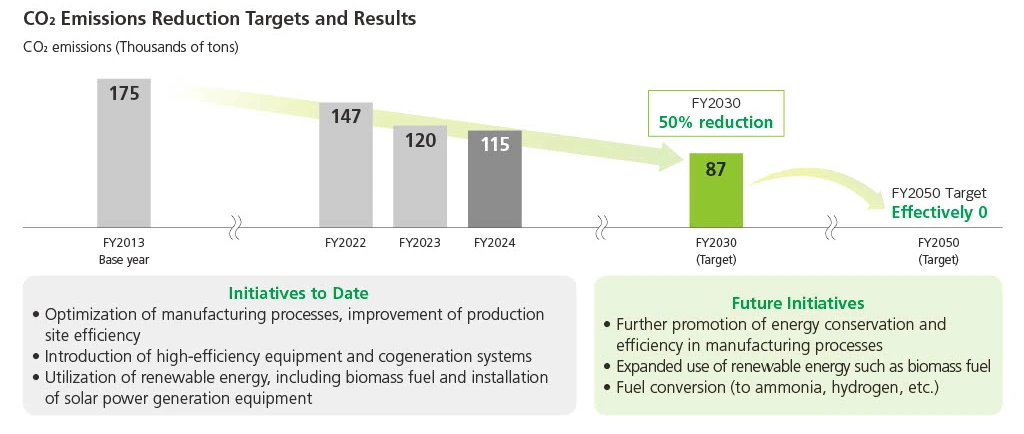Greenhouse gas (GHG) reduction
Reduction policy
As a company that relies on natural resources for many of its raw materials, we are actively working to reduce greenhouse gas emissions, which are important issues that affect global warming and climate change, as well as raw material production and crop yields.
Medium- to long-term reduction target
J-OIL MILLS set a goal of reducing CO2 emissions by 45% by fiscal 2020 compared to fiscal 1990 levels. In its production division, the company has been promoting more efficient energy use by installing its own energy generation equipment and making arrangements for efficient energy supplies from other companies, and achieved a reduction of more than 45% in fiscal 2020.
In fiscal 2021, we set a target of reducing CO2 emissions by 50% compared to fiscal 2013 levels by fiscal 2030 (Scope 1, 2). At the same time, we will further advance our initiatives, setting a goal of achieving carbon neutrality by achieving zero emissions by fiscal 2050. We also aim to reduce CO2 emissions throughout the entire supply chain, including from purchased raw materials and product manufacturing (Scope 3).
In addition, in accordance with the Act on the Rational Use and Proper Management of Fluorocarbons, we conduct voluntary and regular inspections of refrigeration units, air conditioners, and other equipment that contains fluorocarbons at our domestic Plant and business offices.

Starting in fiscal 2022, we have incorporated ESG indicators into the individual performance targets of our executives. One of the ESG indicators we have incorporated is addressing climate change, such as reducing CO2 emissions. By introducing incentives that link executive compensation with ESG indicators, we will strengthen executives' awareness of climate change initiatives and promote ESG Management.
Additionally, we have introduced the Internal Carbon Pricing (ICP) system from April 2023. We will continue to accelerate efforts toward carbon neutrality and actively work to reduce greenhouse gas emissions as an important issues that affects global warming, climate change, and raw material production volumes and crop yields.
